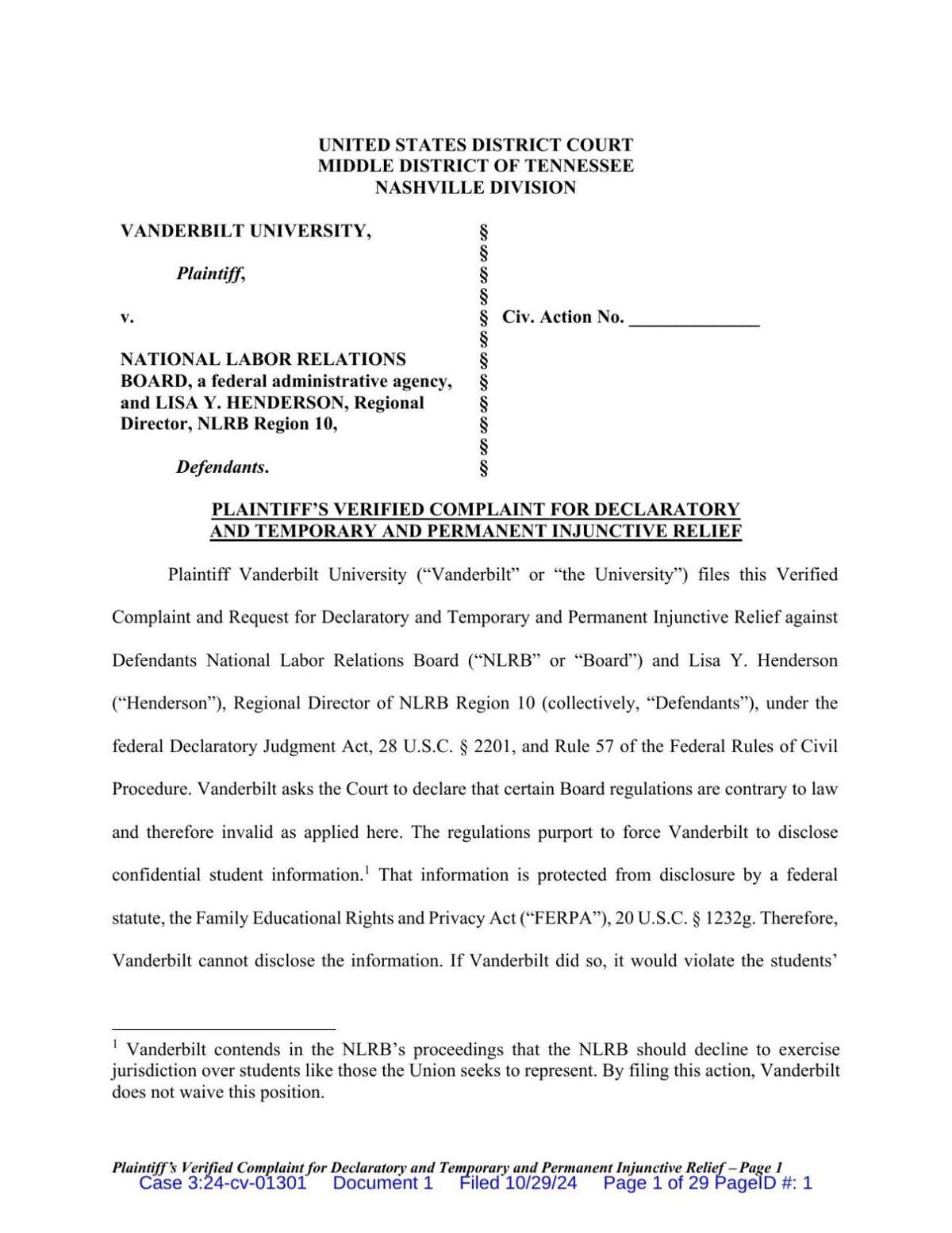Vanderbilt University sued the National Labor Relations Board in federal court this week over an NLRB rule requiring the university to disclose certain student information. The new suit comes alongside an NLRB case between Vanderbilt and labor attorneys representing graduate students seeking a union election on campus.
Federal code requires an employer — in this case, Vanderbilt — to disclose “the full names, work locations, shifts, and job classifications” of employees in the union’s proposed bargaining unit, in this case a 2,200-person group that includes graduate students, teaching assistants and graduate researchers.
Bargaining unit includes 2,200 student-workers, according to new NLRB case
In mid-October, Vanderbilt administrator C. Cybele Raver sent an email to graduate students explaining the school was compelled to release certain information to the NLRB. The email included a way to lodge concerns about the disclosure. Vanderbilt received 78 responses from concerned students out of the entire bargaining unit. In response, the school has withheld all required personal information.
"Vanderbilt is committed to protecting the private and personal information of our students, as we are required to do by federal law,” says a university spokesperson. “We are pleased the federal court has granted the temporary restraining order as we have many students who feel their privacy rights are not being respected by the National Labor Relations Board (NLRB) or the United Auto Workers, and who feel the NLRB is ignoring their rights in favor of its own processes.”
Vanderbilt has protested the disclosure requirement writ large, arguing that it puts the school in an “untenable” position between labor law and the university’s obligations under FERPA, a privacy law governing educational institutions. The school’s failure to comply with the rule has precluded Vanderbilt from presenting evidence in graduate students’ NLRB case.
Organizers collect authorization cards, the first step toward a vote on official recognition
The election filing by graduate students on Oct. 4 kicked off a highly regulated legal process overseen by the NLRB, the federal agency that governs labor law. Vanderbilt hired outside counsel — attorneys at Littler Mendelson, a national firm specializing in management-side labor law — and immediately filed its own response to delay election proceedings.
Union lawyers, dismissing Vanderbilt’s arguments as “specious,” point out that students released the required information to Vanderbilt upon enrollment. Brown University, Columbia University, Massachusetts Institute of Technology, Duke University and other schools subject to FERPA produced the required lists in previous NLRB cases.







